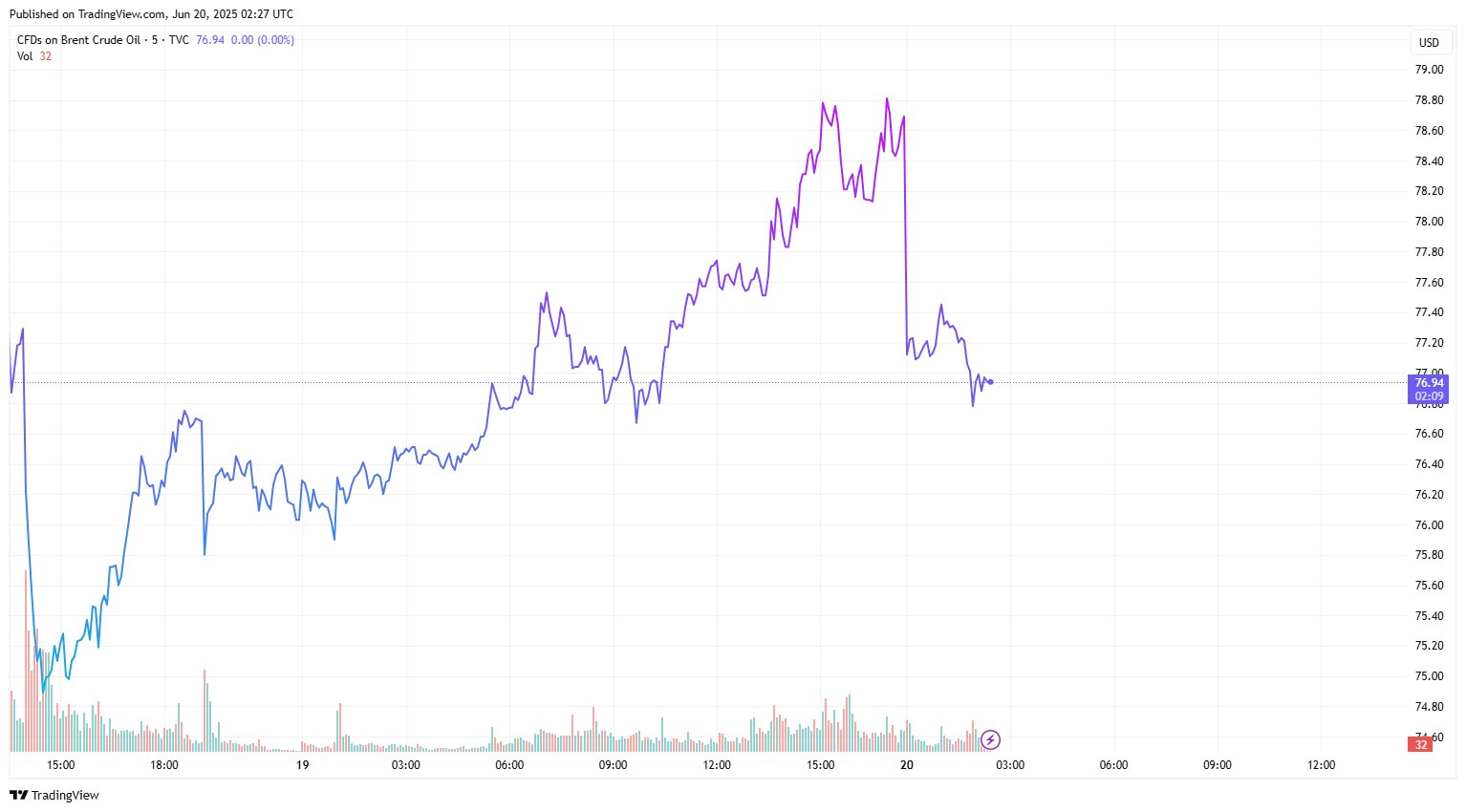U.S. Considers Intervention in Israel-Iran Conflict, Stock Futures and Oil Prices Drop

Risk appetite in financial markets is worsening as rumors of U.S. involvement in the Middle East conflict increase. U.S. futures were still lower Thursday night, despite the White House pouring cold water on these rumors, saying that Trump will decide whether to attack Iran "in the next two weeks."
U.S. stock futures fell
As of this writing, Dow Jones Industrial Average futures fell more than 180 points, or 0.44%, S&P 500 futures fell 23 points, and Nasdaq 100 futures fell 67 points, both down about 0.3%. Stock markets were closed on Thursday for Juneteenth, allowing investors to take a break despite increasingly turbulent global news.
U.S. stock index futures were on a downward trend, suggesting that market sentiment remained depressed due to uncertainty over the Middle East conflict. Coupled with investors' vigilance over stalled trade negotiations between the United States and other countries, market sentiment was further hit.
Trump's comments temporarily curbed the rise in oil prices
Geopolitical unease pushed oil prices further up. Earlier, Brent rose about 3% on Thursday, while WTI edged up about 1%, amid Israeli attacks on more Iranian nuclear sites and rumors of U.S. involvement in the war.
However, crude slipped after U.S. President Donald Trump announced that a decision would be made within two weeks on whether the U.S. would intervene in the Israeli-Iranian conflict. As of writing, Brent was down about 2% and WTI was down about 0.5%. Still, oil prices are expected to rise for the third week.

Source: TradingView
How likely is U.S. intervention in the war?
Anna Rosenberg, head of geopolitics at Amundi Investment Institute, said the likelihood of U.S. involvement is "quite high at this moment in time."
"For the US, this is a moment to take out a big geopolitical headache, which is Iran potentially developing a nuclear weapon," Rosenberg said. "Having said that, acting comes with a lot of consequences, too. Trump will have to make a really difficult decision."
Trader sentiment has become more cautious as reports emerged that senior U.S. officials are preparing for a possible strike on Iran in the coming days. Markets were already on edge after the Federal Reserve cut its economic growth forecast for this year and predicted higher inflation.
“If the US does strike, you’re going to see a big knee-jerk reaction,” said Neil Wilson, investor strategist at Saxo UK. “No one will be wanting to make big, long bets.”
Any signs of escalating tensions and concerns that the Iran-Israel crisis could turn into a wider conflict involving the US could boost risk assets and crude prices in the short term.
Jennifer McKeown, chief global economist at Capital Economics, believes some extreme scenarios could push oil prices to $130 to $150 a barrel if the US increases its involvement in the war between Israel and Iran, especially if Iran retaliates on a large scale. Such a scenario would pause central banks’ further easing, she said.
Before making any trading decisions, it is important to equip yourself with sufficient fundamental knowledge, have a comprehensive understanding of market trends, be aware of risks and hidden costs, carefully consider investment targets, level of experience, risk appetite, and seek professional advice if necessary.
Furthermore, the content of this article is solely the author's personal opinion and does not necessarily constitute investment advice. The content of this article is for reference purposes only, and readers should not use this article as a basis for any investment decisions.
Investors should not rely on this information as a substitute for independent judgment or make decisions solely based on this information. It does not constitute any trading activity and does not guarantee any profits in trading.
If you have any inquiries regarding the data, information, or content related to Mitrade in this article, please contact us via email: insights@mitrade.com. The Mitrade team will carefully review the content to continue improving the quality of the article.

